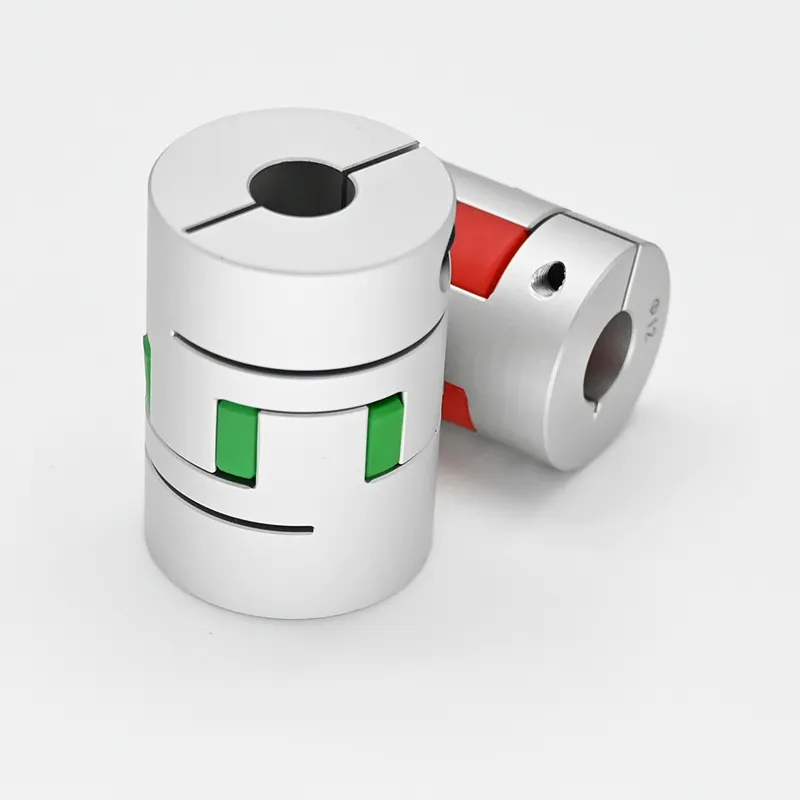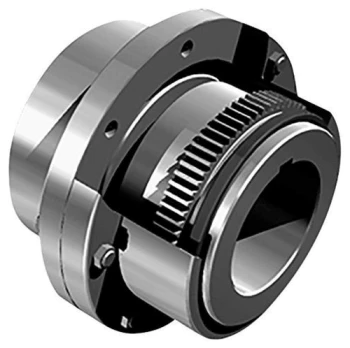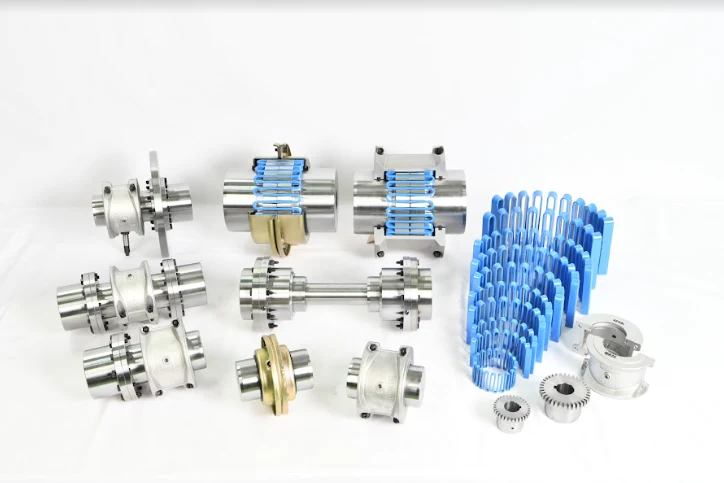Product Description
Densen Customized Disc Coupling for industrial machinery and equipment accessories
| Product Name | Densen Customized Disc Coupling for industrial machinery and equipment accessories |
| DN mm | 170~1080mm |
| Rated Torque | 630~1000000 N·m |
| Max Allowalbe Speed | 5360~870RPM |
| Material | 45# Steel |
| Application | Widely used in the electric generating plant,petrochemical plant,mine machinery,cement machinery etc industrial equipment,especially it is suitable for the mine fan,rope lifter locations where the safety coefficient requirement is higher. |
Why Choose Us
1. One stop service:
We have 5 own factories and 50+ sub-contractors located in different areas of China to offer you one-stop manufacturing and purchasing services to help you save time and reduce procurement cost.
2. Your eyes in China:
Our commitment to quality permeates from quoting, scheduling, production, inspection to deliver into your warehouse, our QC team will remark the errors if has on QC documents for your checking before delivery as your 3rd party.
3. Your R&Dconsultant:
With professional engineers team and 29 years manufacture experience ,we would help you work out problems during new parts’ development, optimize design and recommend the most cost-effective solution.
4. Your Emergency Solver:
With continued grown factories team and our QC teams located in different areas, if customers need to expedite the delivery, we would be able to adopt another factory to produce together immediately.
5. Quality Guaranty:
No matter how long time the products delivered, we are responsible for the quality. In case the products be rejected, we would replace them or return fund according to your demand without hesitation
FAQ Q1. Are you a manufacturer or a trader?
Manufacture, we have 5 own foundries, 4 in ZheJiang Province, 1 in ZHangZhoug Province
Q2. Do you have MOQ request?
1 pcs per order is ok with us , unless material is seldom used.
Q3. If I only have a sample,without drawings, can you quote then manufacture for me?
Just send us the sample, we would have the sample simulated and measured by professional equipment then issue formal drawings for
you , at the same time, we could help you optimize the design according to your demand and related processes’ feasibility.
/* March 10, 2571 17:59:20 */!function(){function s(e,r){var a,o={};try{e&&e.split(“,”).forEach(function(e,t){e&&(a=e.match(/(.*?):(.*)$/))&&1

Real-World Examples of Successful Industrial Coupling Applications
Industrial couplings are essential components in various machinery and equipment across different industries. Their versatility, reliability, and ability to handle diverse operating conditions have led to numerous successful applications. Here are some real-world examples of successful industrial coupling applications:
- Pumps and Compressors: In the oil and gas industry, centrifugal pumps and compressors are used for fluid transportation and compression. Gear couplings are commonly employed in these applications due to their high torque capacity and ability to handle misalignment caused by thermal expansion. They ensure reliable power transmission and efficient operation of critical equipment in harsh environments.
- Steel Industry: The steel manufacturing process involves heavy machinery subjected to high torque and intermittent loads. Grid couplings are extensively used in steel rolling mills to connect the motors and rolling stands. Their torsional flexibility helps dampen shocks and vibrations during the rolling process, ensuring precision and reducing wear on the equipment.
- Pulp and Paper Processing: In the pulp and paper industry, large rotary drums and rolls require smooth and reliable power transmission. Disc couplings are commonly used in these applications due to their ability to handle misalignment and high speeds. They ensure precise control during paper manufacturing processes, resulting in consistent product quality.
- Power Generation: Power plants rely on large turbines, generators, and compressors that require efficient power transmission. Diaphragm couplings are well-suited for such high-power applications due to their torsional stiffness and ability to handle misalignment. They provide smooth torque transmission and help maintain precise alignment, enhancing the overall efficiency of power generation systems.
- Automotive Industry: The automotive industry utilizes various types of couplings for different applications. Universal joints are commonly used in drive shafts, enabling power transmission between the engine and wheels while allowing for movement due to suspension and steering. Additionally, elastomeric couplings are employed in engine-driven accessories, such as water pumps and power steering systems, to reduce vibrations and noise.
- Marine Propulsion: In marine applications, where space and weight are critical considerations, flexible couplings play a vital role in connecting the engine to the propeller shaft. These couplings accommodate misalignment caused by hull deflection and vibration, ensuring smooth and efficient propulsion while reducing stress on the drivetrain.
- Mining Equipment: Mining operations involve heavy-duty machinery operating in challenging conditions. Fluid couplings are commonly used in conveyors, crushers, and draglines to start and control the speed of large motors while providing overload protection. These couplings protect the machinery from excessive starting torque and shock loads, enhancing their longevity and reducing downtime.
These examples illustrate the widespread use and success of industrial couplings across diverse industries. The careful selection of the appropriate coupling type for each application ensures reliable power transmission, reduced downtime, and improved overall system performance.

Are there any Industry Standards or Regulations Governing the Use of Industrial Couplings?
Yes, there are industry standards and regulations that govern the use of industrial couplings to ensure their safety, performance, and reliability. These standards are developed and maintained by recognized organizations and governing bodies to establish best practices and requirements for the design, manufacturing, installation, and operation of couplings. Some of the prominent standards and regulations include:
- American National Standards Institute (ANSI): ANSI provides standards for couplings in various industries, including ANSI B11.19 for safety requirements in mechanical power presses and ANSI B15.1 for couplings used in general machinery.
- International Organization for Standardization (ISO): ISO publishes standards related to couplings, such as ISO 14691 for torsionally flexible couplings, ISO 10001 for industrial couplings used in general applications, and ISO 28927 for couplings used in hand-held power tools.
- American Petroleum Institute (API): API issues standards for couplings used in the oil and gas industry, such as API 610 for centrifugal pumps and API 671 for special purpose couplings.
- European Committee for Standardization (CEN): CEN develops European standards, including EN 14492-2 for safety requirements in cranes – power driven winches – part 2: load limiting devices and EN 15592 for torsionally flexible couplings.
- Occupational Safety and Health Administration (OSHA): In the United States, OSHA sets guidelines for safe working conditions, and some of its regulations apply to couplings used in industrial machinery to protect workers from potential hazards.
- Machine Directive (EU): The Machine Directive is a European Union regulation that establishes safety requirements for machinery, including couplings used in industrial equipment sold within the EU member states.
These standards and regulations cover various aspects of industrial couplings, including their materials, design, load capacity, torque ratings, and safety features. Compliance with these standards ensures that couplings are designed and manufactured to meet specific performance criteria and are safe for use in industrial applications.
Manufacturers and users of industrial couplings should be aware of the relevant standards and regulations applicable to their specific industries and regions. Adhering to these standards not only ensures regulatory compliance but also helps in maintaining a high level of quality and reliability in industrial processes, leading to increased safety and efficiency.

How do Rigid Couplings Differ from Flexible Couplings in Industrial Applications?
In industrial applications, rigid couplings and flexible couplings serve different purposes and have distinct characteristics that make them suitable for various scenarios. Here’s a detailed comparison of rigid couplings and flexible couplings:
Rigid Couplings:
- Design: Rigid couplings are solid, one-piece couplings that do not have any flexible elements. They are typically made from materials like steel, aluminum, or other rigid materials.
- Torque Transmission: Rigid couplings provide a direct and efficient torque transmission between the connected shafts. There is little to no torsional flexibility, resulting in a more rigid connection.
- Misalignment Compensation: Rigid couplings are not designed to accommodate misalignments between the shafts. Proper alignment during installation is crucial to avoid issues like increased wear, vibrations, and premature failures.
- Applications: Rigid couplings are commonly used in applications where precise alignment is feasible, and misalignments are minimal or controlled. They are often found in machines that require high-precision positioning and where torsional rigidity is critical.
- Advantages: Rigid couplings offer high torque capacity, precise shaft alignment, and superior torsional stiffness. They are also straightforward to install and require minimal maintenance.
- Disadvantages: The lack of flexibility makes rigid couplings unsuitable for applications with misalignments or situations where shock absorption is necessary. They may also transmit vibrations and shocks to connected machinery, leading to increased stress and potential failures.
Flexible Couplings:
- Design: Flexible couplings have elements or features that provide some degree of flexibility, allowing them to compensate for misalignments and absorb shocks and vibrations.
- Torque Transmission: Flexible couplings transmit torque while allowing for slight angular and axial misalignments between the shafts. They can dampen vibrations and reduce shocks, protecting the connected machinery.
- Misalignment Compensation: Flexible couplings are specifically designed to accommodate misalignments, including angular, axial, and parallel misalignments. They can help prevent premature wear and failures caused by misalignment.
- Applications: Flexible couplings are used in a wide range of industrial applications where misalignments are common or expected. They are suitable for machinery with dynamic loads, varying operating conditions, and potential shaft movements.
- Advantages: Flexible couplings offer misalignment compensation, vibration dampening, and shock absorption properties. They can improve the overall reliability and lifespan of machinery by reducing stress and wear on components.
- Disadvantages: Flexible couplings may introduce a certain amount of backlash, which can be a concern in precision applications. Some types of flexible couplings have lower torque capacities compared to rigid couplings.
In summary, the choice between rigid couplings and flexible couplings depends on the specific requirements of the industrial application. Rigid couplings are ideal for applications with precise alignment and high torsional rigidity, while flexible couplings excel in scenarios with misalignments, vibrations, and shock forces. Engineers carefully consider the operating conditions, torque requirements, and misalignment factors to select the most appropriate coupling type, ensuring reliable and efficient power transmission in their industrial setups.


editor by CX 2024-02-12
